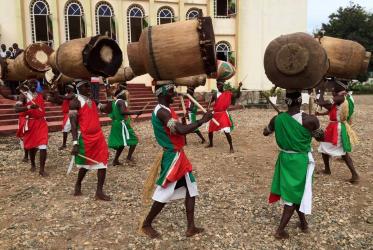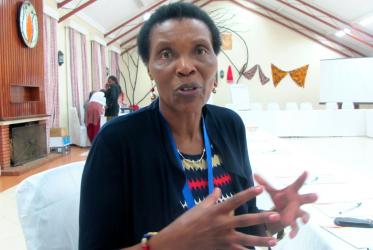Displaying 61 - 80 of 81
23 February 2017
Bossey’s new missiology professor shares world of Africa and Europe
01 February 2017
The work of the Spirit and discipleship in Christian mission
12 January 2017
East African communities discuss disability, theology
17 November 2016
Calls for peace in Burundi grow louder
10 March 2016
WCC solidarity visit to Burundi
02 March 2016
Commission plans World Mission Conference in 2018
25 February 2016
Methodist Church in Kenya consecrates second woman bishop
05 February 2016
WCC and AACC express grave concern over situation in Burundi
18 December 2015
Land rights focus of panel discussion
17 November 2015









